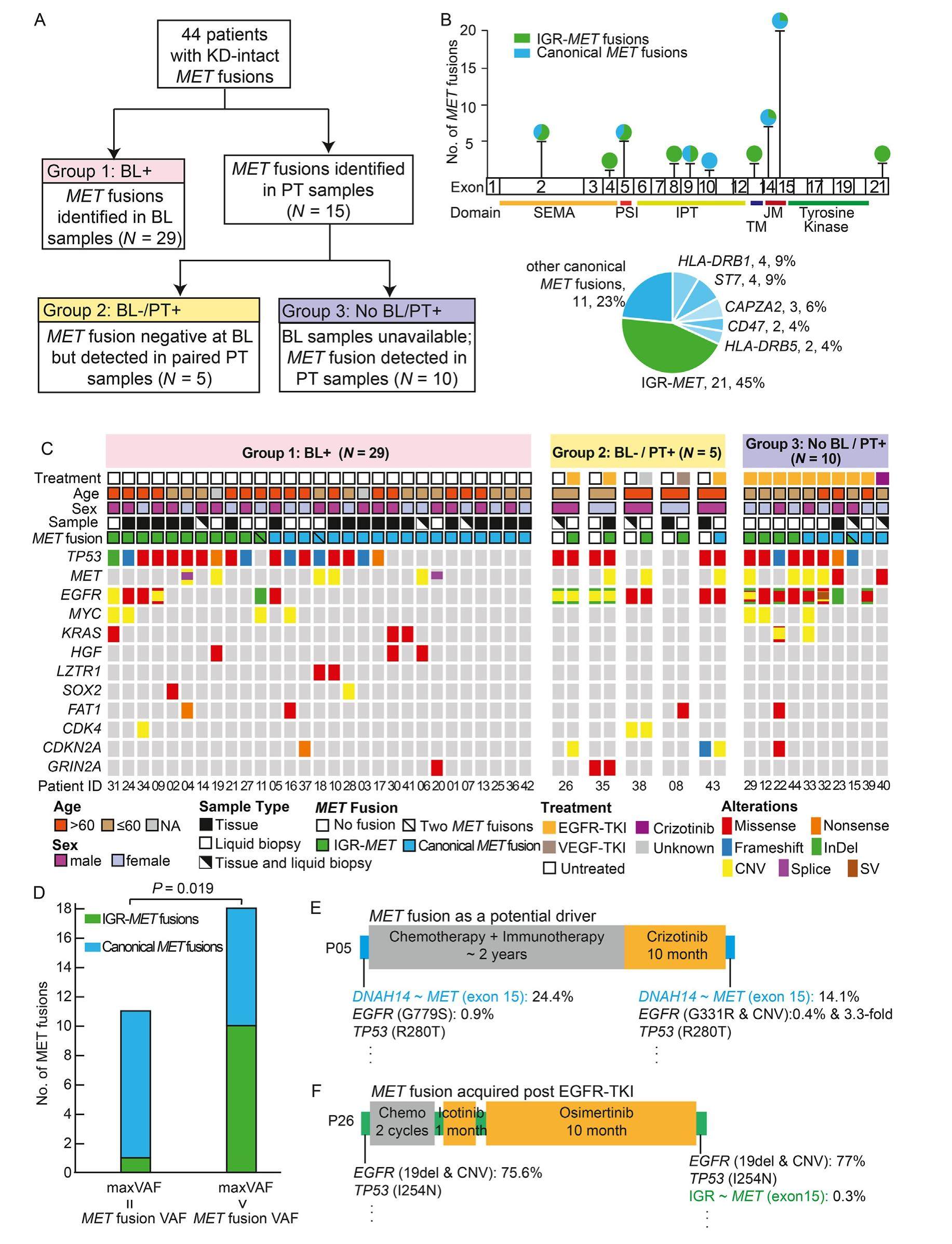
Clinical and genomic analysis of baseline and acquired MET fusions with an intact kinase domain in lung cancer patients


MET gene alterations in lung cancer patients mainly include exon 14 skipping and gene amplification, which are the key therapeutic targets and drive resistance to tyrosine kinase inhibitors (TKIs). However, the structural variants of MET, such as MET fusions, are much rarer (0.26%), as reported in a Chinese non-small cell lung cancer (NSCLC) cohort. Several recurrent MET fusions, such as KIF5B-MET and HLA-DRB1-MET, were reported as oncogenic drivers and showed favorable responses to crizotinib. In addition, MET fusions have been found to mediate resistance to EGFR-TKIs. With the application of comprehensive genomic analyses in clinical samples, an increasing number of MET fusion partners have been identified; however, the clinical and molecular characteristics of patients harboring such MET fusions remain to be investigated in large cohorts.
